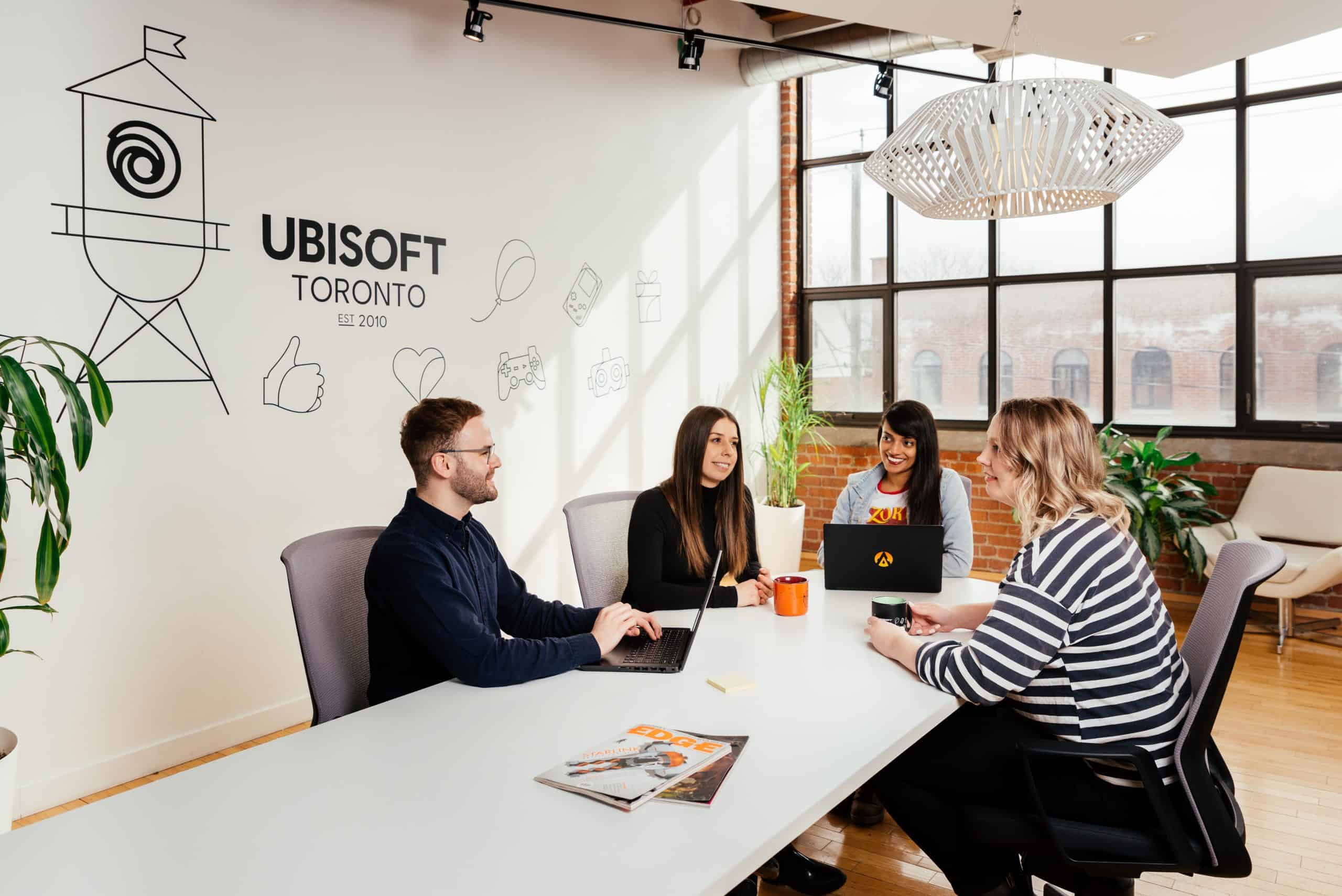Your top questions answered.
Last month, the Ubisoft Toronto recruitment team took to our Instagram page to hear aspiring developers’ most pressing questions about landing their dream job in the games industry.
We received many thoughtful questions, and today we’re going to answer some of the most common questions about applying to open roles, doing your best in interviews, and growing your network. Read on for advice from our recruiters!
Q: What are you looking for in applicants?
A great first step is knowing what discipline you are applying for and tailoring your resume and experience to that role. We always recommend you review a job description carefully, as it outlines what hiring managers are searching for in candidates.
It might go without saying: our team is looking for a passion for working in video games in potential candidates. But what does that mean in practice?
When we gauge passion in applicants, we are looking for people who stay up-to-date on game trends, have learned the basics on how production teams work, are excited about new tech and innovation, and even have ideas of how we can improve our games, depending on the field you are applying for. Passion comes in many forms, but an excitement to learn new things is always appreciated.
Remember that your experience may not fit the full criteria. However, knowing what is missing, and conveying in your cover letter how your previous experience or education might cover those gaps, can be helpful.
Which leads us to…
Q: Do I need to submit a cover letter?
Yes! We want to know the full story of who you are as a candidate, and that’s where your cover letter comes in. It’s where you can speak to things like group projects, or extra-curricular work that might not be listed on your resume. This is your chance to tell us why you are the perfect fit for this role.
Q: What’s the interview process like?
It typically starts with an initial interview with one of our recruiters. They are your primary contact through the process and will provide you with a timeline of what you can expect.
The next steps often requires you to complete a test specific to your role, and then the hiring manager will assess your profile. If your profile matches what they are looking for, you can expect up to two separate interviews with the team, with regular updates from the recruiter throughout the process. If all goes well, we move to the potential offer stage, which is when we discuss timelines for your availability, compensation, and clarify the role and responsibilities.
Q: During technical interviews, what are some key aspects to focus on?
A rule of thumb: If it’s in your resume, be prepared to talk about it.
Be as detailed as possible about your experience. We’ll want to know what systems you’ve worked on, your coding best practices, and what problems you’ve solved. Be clear about your contributions to a project — avoid using “we” statements. Our recruiters want to know the type of work you have tackled.
Hiring managers will also expect you to be aware of the challenges and trends in the games industry, as they pertain to your field.
Also, pay attention to what the question is asking. If you’re unsure, don’t be afraid to ask for clarity!
Q: Is it better to have one big project on your portfolio or many smaller ones?
You always want to show your best work in your portfolio. If you have any work that doesn’t reflect the best that you can do, it’s safer to remove it. If you only have one big project (especially if it’s a group project), include a clear breakdown of the exact components you worked on. Where possible, include examples of your work that demonstrate your understanding of the tech behind what you do (for example, wireframe efficiency, texture atlas layout, etc.)
We also suggest including a breakdown of your work in your portfolio that explains:
- How long you worked on it
- Your meshes or different maps (if it’s art assets)
- Your process flow and references
It’s always a good idea to keep working on building your portfolio and improving your skills. Get as much feedback as you can before you submit, whether it’s from friends, classmates, family, or mentors. You can even connect with industry experts via LinkedIn or ArtStation.
Q: Are there positions available at Ubisoft outside of game production?
Ubisoft Toronto is primarily a game development studio, so the majority of our open positions are in production. We do have support teams that include roles in IT, Operations, HR, Finance / Accounting, Communications, and User Research. If those are of interest to you, keep an eye out for open positions on our Jobs page and follow our recruiters on social media to learn more about open positions.
Q: How important is networking to landing your first job in the industry?
Networking is always important! You can start with simple actions like following the Ubisoft Toronto LinkedIn page (where we announce mentorships or networking opportunities), connecting with recruiters and industry professionals via LinkedIn, ArtStation, and Twitter, and becoming aware of industry events in Toronto. Look for industry professionals sharing best practices and mentorship online (and organizations like Interactive Ontario and Hand Eye Society) and search out others in your field who are sharing knowledge and growing local indie communities.
We hope this helps! We’re always looking for talented and passionate candidates to join our team, so don’t hesitate — take a look at the Ubisoft Toronto Jobs page, and meet our recruitment team!



